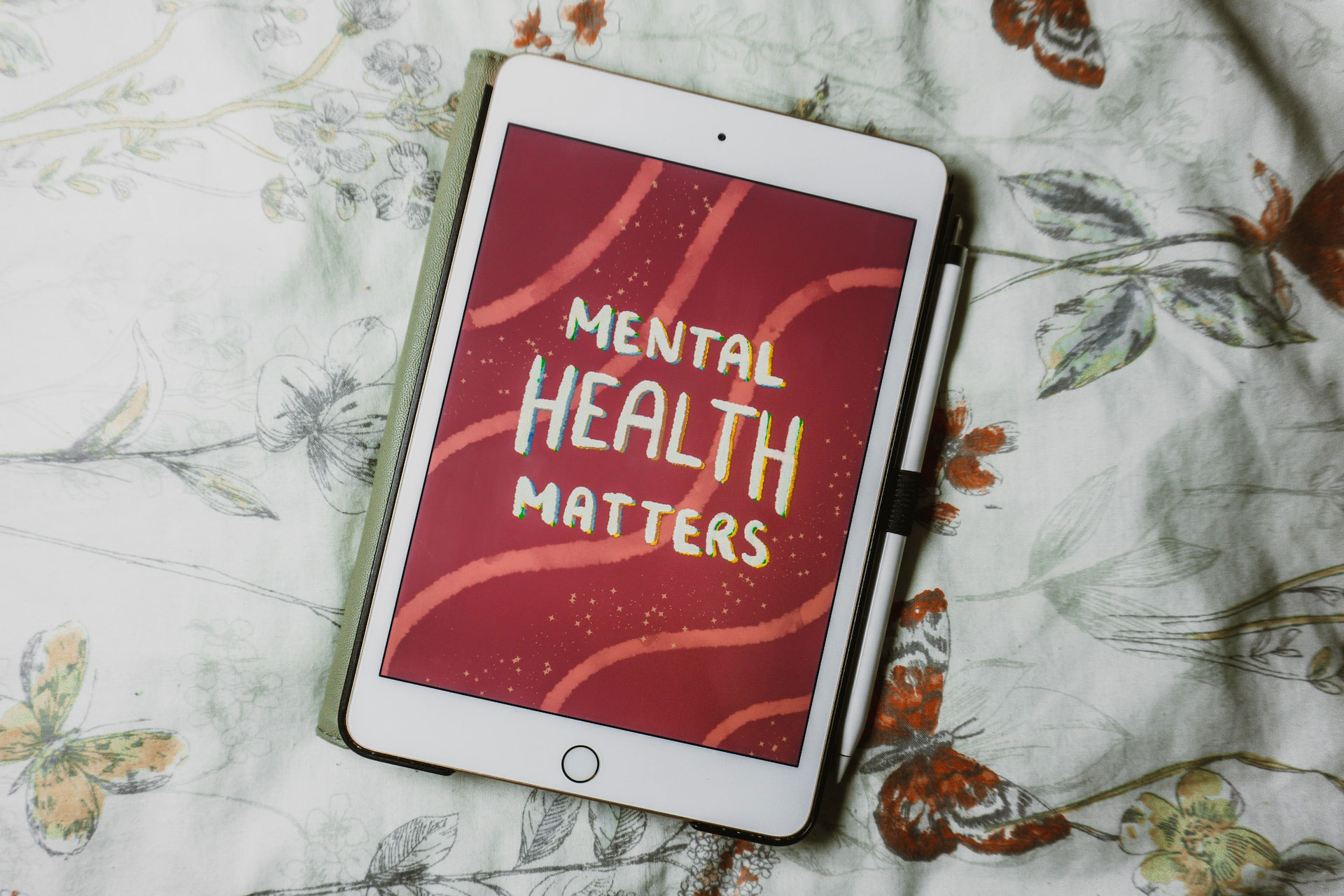How Mental Health Stigma Differs Across Cultures
Mental health affects everyone. Yet, how people talk about it—and whether they talk about it at all—can vary drastically depending on their cultural background. In some communities, mental health struggles are met with compassion and understanding. In others, they are hidden behind silence, shame, or fear.
Cultural beliefs shape how people understand mental illness, seek help, and support one another. To promote better global mental health, we must understand how stigma looks different across cultures—and why it matters.
What Is Mental Health Stigma?
Mental health stigma refers to the negative attitudes, stereotypes, and discrimination directed toward people who live with mental health conditions.
It often leads to:
- Shame and silence
- Fear of judgment
- Delayed treatment
- Social isolation
- Lack of access to support
According to the World Health Organisation (WHO), nearly two-thirds of people with mental illness never seek professional help due to stigma, discrimination, and neglect. 1
Stigma doesn’t just harm individuals—it affects families, communities, and even entire healthcare systems.

The Roots of Cultural Differences in Stigma
Every culture has its own way of understanding health, illness, family roles, and emotional expression. These beliefs shape how mental health is viewed.
Factors that influence mental health stigma in different cultures include:
- Religious or spiritual beliefs
- Social norms and gender roles
- Historical trauma or colonisation
- Language and terminology
- Value placed on privacy or community
Let’s take a closer look at how stigma shows up in different cultural contexts.
Mental Health Stigma in Western Cultures
In countries like the United States, Canada, or parts of Europe, conversations around mental health have become more open in recent years. Campaigns, celebrities, and social media have helped break down some stigma.
However, challenges still exist:
- Mental illness may be viewed as a personal weakness
- Men may feel pressure to appear “strong” and hide emotional pain
- People of colour often face double stigma due to racial and mental health discrimination
A 2022 study by the American Psychological Association found that Black, Indigenous, and People of Colour (BIPOC) were less likely to seek mental health care due to cultural mistrust and stigma within their communities. 2
Even in more progressive societies, stigma continues—especially when intersecting with race, gender, or class.

Mental Health Stigma in Asian Cultures
In many East Asian and South Asian cultures, mental illness is often tied to family reputation, shame, and social standing.
Common beliefs include:
- Mental illness is a loss of face
- It brings dishonour to the family
- Emotional struggles should be handled privately
- Seeking help reflects weakness or failure
For example, in traditional Chinese culture, mental illness may be viewed as an imbalance of spiritual energy. Families may avoid discussing it to protect social image.
A study in BMC Psychiatry found that over 70% of Chinese university students believed people with mental illness should keep it secret 3.
In India, stigma is also shaped by religious beliefs and the concept of karma. Some families turn to spiritual healers instead of professional support.
However, younger generations are beginning to challenge these ideas—especially in urban areas and through online platforms.
Mental Health Stigma in Middle Eastern Cultures
In many Middle Eastern communities, mental illness is strongly influenced by religion, tradition, and honour culture.
Emotional distress may be interpreted as:
- A spiritual weakness
- A punishment or test from God
- A lack of faith or willpower
Mental health issues are often hidden within families, especially when they involve women. Seeking therapy may be discouraged, and medication can carry social shame.
A 2021 review in Frontiers in Psychiatry reported that mental illness in Arab countries is often underdiagnosed, with people waiting years to seek help due to stigma. 4
Despite this, mental health awareness is growing in the region, with more youth-led initiatives and education programs emerging.
Mental Health Stigma in African Cultures
Across many African cultures, mental illness is often viewed through a spiritual or supernatural lens.
Causes may be believed to include:
- Witchcraft
- Ancestral curses
- Possession by spirits
This can lead to people being sent to traditional healers or spiritual leaders rather than mental health professionals. In some communities, those with mental illness may be shunned, chained, or institutionalised.
The World Health Organisation reported that in some parts of Sub-Saharan Africa, there is less than one psychiatrist per 100,000 people, making access to care a major issue. 5
However, community-based care and integration of traditional and medical approaches are beginning to show promise in some regions.
Mental Health Stigma in Latin American Cultures
In Latin America, mental health stigma often blends religious, cultural, and family values. Many people value strength, emotional resilience, and keeping struggles within the family.
Common beliefs may include:
- “We don’t talk about that.”
- “Just pray and it will go away.”
- “Therapy is for people who are crazy.”
Gender roles can play a role, too. Machismo may prevent men from seeking help or expressing vulnerability.
According to a study by the Pan American Health Organisation (PAHO), mental health stigma remains a top barrier to care in Latin American countries, especially in rural areas. 6
Still, many nations are working to integrate mental health into primary care and reduce stigma through education and outreach.
How We Can Break Cultural Barriers
Addressing mental health stigma across cultures requires cultural humility, education, and compassion.
Here are a few ways to help:
1. Start With Listening
Before offering advice or solutions, listen to how others understand mental health in their context. Respect their beliefs while gently offering new perspectives.
2. Use Culturally Sensitive Language
Words matter. Use language that fits the audience and avoids judgment. For example, “stress” or “emotional health” may feel more acceptable than “mental illness” in some cultures.
3. Involve Families and Faith Leaders
In collectivist cultures, family and community figures often hold influence. Engaging them in mental health conversations can build trust and increase access.
4. Share Diverse Stories
Representation matters. When people see others from their background talk openly about mental health, stigma starts to fade.
5. Support Culturally Competent Care
Therapists and mental health professionals should be trained in cultural competency—the ability to understand, respect, and respond to different cultural beliefs and needs.
Final Thoughts
Mental health stigma is not the same everywhere. It is shaped by culture, history, religion, and family. By understanding these differences, we can meet people where they are and create space for healing that honours their identity.
No one should suffer in silence because of shame or fear. Mental health is a human experience—and every culture has the power to support it in ways that feel safe, kind, and healing.
Let’s talk, listen, and grow—together.
References
- World Health Organisation. (2021). Mental health: Strengthening our response. https://www.who.int/news-room
- American Psychological Association. (2022). Mental health disparities: Diverse populations. https://www.apa.org
- Yang, L. H., et al. (2013). Culture and stigma of mental illness: Chinese experience. BMC Psychiatry, 13, 73. https://doi.org/10.1186/1471-244X-13-73
- Dardas, L. A., et al. (2021). Stigma and mental health in the Arab world: A scoping review. Frontiers in Psychiatry, 12, 653263. https://doi.org/10.3389/fpsyt.2021.653263
- WHO. (2020). Mental Health Atlas. https://www.who.int/publications/i/item/9789240036703
- Pan American Health Organisation (PAHO). (2022). Mental health in Latin America and the Caribbean. https://www.paho.org
![[AD] ✨ Festive magic for local families in the heart of Guildford ✨
We had the loveliest evening exploring the @guildfordilluminate light trail at Guildford Castle
The trail takes around 30–40 mins
with cosy stops for hot chocolate and toasting marshmallows, it’s a gorgeous Christmas activity for Surrey families.
It’s on until 4th January and makes the perfect festive plan:
🛍️ Christmas shopping in town
✨ The light trail
🍽️ Finish with dinner in Guildford
If you’re looking for a magical, stress-free festive outing with the kids — this is one to add to your Christmas list
📍 Guildford Castle, Castle St, Guildford GU1 3SX
#GuildfordWithKids #SurreyFamilies #ChristmasInSurrey](https://suburban-mum.com/wp-content/uploads/2018/09/589257185_18566118850016840_4432952740767953046_n-180x320.jpg)
![[AD] We went to the newly opened Cha Sha Kingston a couple of weeks ago, and wow — taste bud adventure unlocked! The boys devoured the masala fries and chicken tikka rolls, while we couldn’t get enough of that epic kebab butter curry 😍🍛.
It’s amazing value for food this tasty (and everyone left happy and VERY full!).
Delicious food, vibrant vibes and incredible value — the perfect combo for your next meal.
📍Cha Sha Kingston
43 Surbiton Road, KT1 2HG
🌐 chasha.co.uk
Other Cha Sha locations in Birmingham, Ilford, Southampton and Wembkey
#ChaSha #ChaShaKingston #KingstonEats #FoodieFinds #UKFoodie #FoodReview #KingstonUponThames #FamilyEats #FamilyDining #FoodieKids](https://suburban-mum.com/wp-content/uploads/2016/02/574770541_18560351146016840_6855048070839528040_n-180x320.jpg)

![[AD] We’re a cricket-mad family, so we’re buzzing that @thehundred is back this August! 🏏🔥
To get ready, M tried out the official FREE Activity Pack — and it’s brilliant! 🙌
Packed with fun games, creative challenges and sporty tasks, it’s perfect for getting kids hyped whether you’re at home or on the go.
👉Download yours now (link in bio)
@londonspirit @ovalinvincibles #EveryMomentCounts #TheHundred
#EnglandCricket #CricketFamily #TheHundredCricket #LondonBloggers #Cricket #CricketIsLife #kidsfun](https://suburban-mum.com/wp-content/uploads/2022/11/505472555_18531279601016840_7092520074819907569_n-180x320.jpg)



![[AD - Press visit]
We enjoyed the glorious sunshine this weekend with a trip to Brighton. We went on the @brightoni360official which is right by the sea front.
The i360 pod take a slow journey up, allowing you to take in views across Brighton and the South Downs 450ft above ground. There’s a bar inside with drinks and snacks available to purchase and the experience lasts 25 minutes.
Afterwards, we headed to the open air roller rink for a roller skating session!
The roller rink is:
⭐ Suitable for over 5s
⭐ £6.50 if you have your own skates or £9.50 if you need to hire them
⭐ 45 minutes per session
Full details to visit the i360 + skating
📍 Brighton i360, Lower Kings Road, Brighton BN1 2LN
🚗 Parking nearby (we parked in the Regency Square Car park)
🎟️ Prices start from £25.40 for an adult and £16.90 for a child
🕐 Opening hours are currently Sun-Fri 10.30am-18.30pm and until 19.30pm on Saturdays
☕️ Bar inside the i360, cafe and gift shop
Book tickets here:
https://tickets.brightoni360.co.uk/tickets/?_ga=2.195305772.1869001490.1689671753-1757164059.1689671753/#events?eventid=157](https://suburban-mum.com/wp-content/uploads/2015/04/417980235_313576471048632_3682382982231216432_n.jpg)

![[AD] ***Summer of fun at Barracudas Activity Camps!****
There is plenty for kids to do at @barracudas_activity_day_camps
From Tennis, Archery, Swimming, Motor Sports and more you can be sure that there will be something for kids aged 4.5-14. ⚽🏈🥅🎾🏓🏎️🏹🏊♂️🏉
You can book on a day by day basis - so it can fit in with any other days out/activities you have planned and there are early drop off and late pickup options available. Barracudas are also Ofsted registered so you can use your Childcare Vouchers too.
⭐⭐⭐Get £20 off a week or £4 off a day using my discount code: MARIA20⭐⭐⭐
#BarracudasActivityDayCamp #BarracudasActivityCamp #BarracudaAmbassadors #SummerHolidays #SchoolHolidays #Summer2023 #SummerCamp #DayCare #Camp #KidsCamp #surreymummy #surreymums #SummerOfFun #ActivityCamps #HolidayCamps #Childcare #SchoolHolidays #schoolholidaycamps](https://suburban-mum.com/wp-content/uploads/2024/07/353583570_625625966167953_545896259645102575_n.jpg)



![[AD] We have some super exciting news...we have been chosen to be Laser Quest Ambassadors, and the boys are over the moon!
We are really lucky that our local Laser Quest (@laserquestkingston) is just around the corner from us. It means we can pop in of a weekend or anytime during the school holidays, and with summer just around the corner, I know Laser Quest will be one of our go-to places for some family fun.
As well as games of Laser Quest, there are also VR experiences and arcade amusements too. To find out a bit more about how Laser Quest works, you can read my blog post: https://www.suburban-mum.com/laser-quest-kingston/ (clickable link in bio)
Don't forget to keep an eye out for our Laser Quest posts - I'm going to be giving away two family passes to use at Laserquest Kingston!
If you can't wait and want to head down to Laser Quest to try it out, use the code SUMMER30 for 30% off your booking. The code is valid from now until the end of August 2023 and can be used on Laser Quest games and birthday party bookings.
#LaserquestAmbassador #Laserquest #LaserquestKingston #ActivitiesForKids #FamilyFun #DaysOutWithKids #Lasertag #LaserquestVR #Kingston #ThingsToDoInKingston #SurreyFamilyDaysOut #ThingsToDoWithKids #RainyDayFun #SurreyMummy #SurreyLife #LifeWithKids #LifeWithBoys #familyfunday](https://suburban-mum.com/wp-content/uploads/2015/04/353230107_797358078406942_2405522556733455165_n.jpg)

![[AD] The sun has finally made an appearance and the boys have been making the most of it by spending it
in the garden.
They’re go-to is always football and they’ve been trying to improve their aim and accuracy with the new Messi Foldable Footlball goal from the #MessiTrainingSystem range.
I love the fact the goal is foldable, making it easy to store away when not in use. It is also lightweight so you can effortlessly pack it up and take it to the park or to a friend’s house.
The Messi Foldable Football Goal retails at £36 and can be purchased from @argos
You can read my full review here: https://www.suburban-mum.com/messi-foldable-football-goal/
#TrainLikeMessi #FoldableFootballGoal #FootballSkills #OutdoorFun #LionelMessi #LeoMessi #FootballAtHome #OutdoorKids #JustGetOutside #OutdoorsAndFree #ScreenFreeKids #WhateverTheWeatherKids @flair_gp](https://suburban-mum.com/wp-content/uploads/2015/04/341194882_615024710178056_41977149395989448_n.jpg)

![[AD] We are absolutely thrilled to announce that we are Barracuda Ambassadors again this year.
With Easter just around the corner, the boys were sent the @barracudas_activity_day_camps new camp kit in preparation for the school holidays.
There’s a wide range of activities for kids aged 4.5 - 14 including Tennis, Archery, Basketball, Arts & Crafts and more.
If you like the sound of Barracudas, find out more over on their website. You can also save £20 a week or £4 a day, using my discount code: MARIA20](https://suburban-mum.com/wp-content/uploads/2024/07/336812306_765234558514317_685553691647241974_n.jpg)





